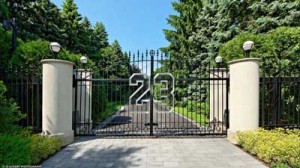This past weekend I caught up with friend and client, NFL Veteran Marcellus Wiley. We talked about what he has been up too, his new life ventures and his time in the NFL. Check out the interview below.
You are on ESPN Radio and a TV Show. How do balance your schedule?
Thank God for the iPhone and a little patience. I never look too far ahead. I try not to peak into the future with my calendar, just day to day big dog….day to day!
What do you miss, if anything, about playing in the NFL?
I don’t miss the game. I rarely miss the locker room. The checks weren’t bad, but I really don’t miss anything about it. It was super rewarding and equally as painful. It was a means to an end, and I’m far from the end! Forward we go!
Which NFL player, former or current do you admire the most?
Eric Dickerson was my idol growing up, so I have to stick with the original. Their are many guys I highly respect, but it all started with #29
What is your favorite restaurant in Los Angeles?
Bamboo’s on Venice. Caribbean food that is affordable with the best seasonings and spices I’ve ever tasted.
Most families hang out around the kitchen. What dish would Marcellus make to keep them there?
Tacos with Ketchup. That’s right, Ketchup! Nothing is better! I can eat them all day and most of my family would agree with me.
What do you like best about living downtown?
I can walk downstairs to work. My commute involves flip flops! Also, I love all the restaurants, bars, and the short walk to Staples Center. Everyday it seems like the community is growing. New York West!
Any future projects we should know about?
Yes, I’m working on a podcast, a very exciting project around the Espys, and a book is in the works! Your boy is trying to keep pace with the spirit of Downtown LA…hustle hard!
**Be sure to listen to Marcellus on the “Max & Marcellus” show on 710 ESPN Radio weekdays from 3-7pm. You can also watch him daily on Sports Nation.
 See the Jumping Man logo in the backs of these stools in the basketball lounge?
See the Jumping Man logo in the backs of these stools in the basketball lounge?


